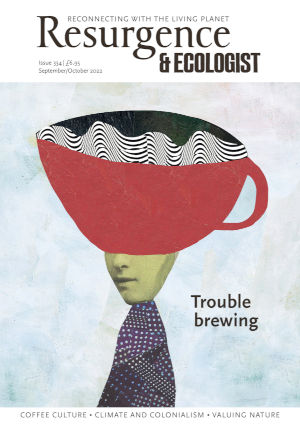Travellers to Colombo in Sri Lanka are greeted by an airport billboard announcing the island nation as “the world’s first ethical apparel sourcing destination”. With its well-built, mostly single-storey factories and strong history of state directives, Sri Lanka has managed to avoid the appalling reputation that dogs much of the rest of the industry. But in her new book Garments Without Guilt? Kanchana Ruwanpura questions whether assertions of ethicality really stand up to scrutiny as she places worker struggle at the heart of Sri Lanka’s garment industry.
This book is the antidote to the frustrating tendency for the garment industry to be treated as an amorphous mass of factories that exist in identical conditions and social frameworks. The years of factory research and what must be thousands of interviews with workers, managers, trade unionists and labour activists are clear in Ruwanpura’s authoritative account of the historical context and current conditions that lie behind ‘Made In Sri Lanka’ clothing labels.
In deciphering the ethical claims made by the Sri Lankan apparel sector, this book does a brilliant job of showing that successes are not due to benevolence on the part of industrialists – much as they might like to believe this to be the case. Instead, Ruwanpura identifies crucial factors like the state both setting and policing strong health and safety standards, as well as providing vital social institutions like free universal education until the age of 16. This has meant both well-built factories and little to no child labour.
Another factor is the voice and struggle of workers themselves. Ruwanpura writes: “The laws themselves are arenas that labourers from yesteryear have struggled over.” When either factory owners or the state have attempted to violate their rights, workers have risen up to defend themselves, and the book details examples from both the post-colonial 1970s and the neo-liberal 2011 period. Serious challenges remain, however – particularly in the securing of a living wage and the right to freedom of association.
More clinical criticism is levelled at the ethical codes of conduct provided to the garment industry by global governance schemes. Generally voluntary, these codes are found to be “hollow, irrelevant even” in this time of global pandemic when garment workers have seen their health and their rights sacrificed by multinational corporations.
Just as no two garment-producing countries should be considered the same, nor should Sri Lanka itself be considered amorphous, with very different situations in the free trade zones of the south and the more rural factories of the war-affected Tamil-speaking north and east. One of the most fascinating chapters of the book deals with the deliberate plan for apparel investors to participate in “post-war rebuilding” after 30 years of brutal civil war, by opening factories in war-affected regions, designed as an attempt to employ and integrate the communities there. Ruwanpura explores the alarming role of the military in recruiting workers to these newly opened factories, sometimes “identifying able young people from their intelligence lists”. Given the very real and ongoing fear of the military, this chapter rightly questions whether an industry built on this basis can be considered ethical and whether “the scars on the national psyche” remain overlooked. The close relationship of garment industrialists and the military continues to this day with the military in charge of Sri Lanka’s pandemic response.
Reading this book in the context of the global pandemic and Sri Lanka’s current economic crisis – both of which have hit the poorest the hardest – I could not help but wonder where the workers we meet in this book are now, whether they still have their health and their jobs, and whether they were ever able to save anything for these difficult times. This book is a reminder that even in the parts of industry labelled as ethical, the global production of clothing is still “predicated upon poverty wages”.







